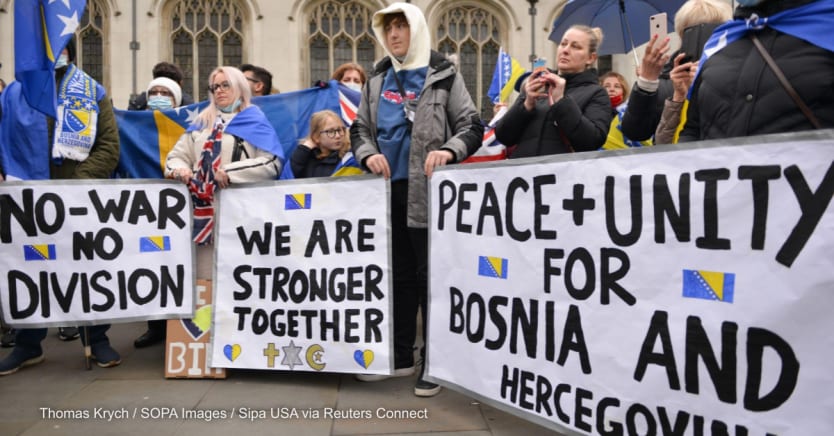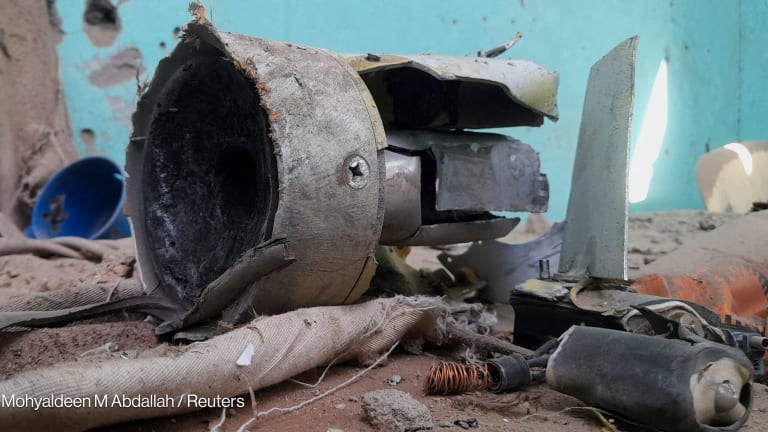
The International Development Committee of the British Parliament has launched a new inquiry into the U.K.’s response to situations where atrocities might occur. Last week, they held their first evidence session with experts from civil society lining up to explain how the United Kingdom could help reduce the risk of violence through a more sophisticated, coherent, and consistent approach.
In so doing they echoed the call made by multiple prior inquiries and civil society. Unfortunately, no matter how many times this argument has been made in recent years the U.K. government seems insistent on rejecting it.
In December, Vicky Ford, minister for Africa, at the Foreign, Commonwealth & Development Office, gave Parliament three reasons why the U.K. does not require an atrocity prevention strategy: most atrocities take place within conflicts; the U.K. manages such circumstances under its conflict prevention programs; and the U.K. wants to further integrate its approaches, not disaggregate them.
Cohesive equitable communities, high public trust, and strong inclusive institutions are the best defense against atrocities.
—The first of these arguments is incorrect, the second has been demonstrated to be insufficient and the third is based on a misperception.
As Kate Ferguson and I outline in the report “Being the Difference,” atrocities are as likely to occur outside of conflict as within them. Of the 12 potential or ongoing atrocity crises mapped by the Global Centre for the Responsibility to Protect, as of November 2021, half are occurring outside of, or unrelated to, armed conflict.
Even where conflict and atrocities are occurring alongside each other, treating atrocities as just another form of violence doesn’t work.
An atrocity-aware approach needs to be employed in Bosnia-Herzegovina where a constitutional crisis and increasing ethnic tension and hate speech targeting minorities have resulted in a situation that the country’s top international official has described as “the greatest existential threat of the post-war period” for Bosnia.
The immediate risk in Bosnia is not a return of conflict. If that does happen it will be, as is so often the case, as a second-order consequence of the return of atrocities. Atrocities, so often treated as a symptom of war, are just as likely to be their cause: to precede warfare and not to follow in its wake.
The risk in Bosnia is that an ongoing rise in identity-based violence and hate speech, rising human rights violations, and faltering trust institutions could lead to a return of ethnic cleansing, one-sided massacres, and widespread, systemic human rights violations that amount to crimes against humanity.
So what can be done? In our report, we look at the pathology that drives much of the kind of violence that states have been so bad at stopping. We identify four factors:
• A common means, such as an international network of criminal, legal, and legitimized groups, who are operating in the manner of organized crime.
• Motive such as identity-based hatred.
• Opportunity such as unchecked power.
• Outcome such as widespread human rights violations that often meet the threshold of atrocity crimes.
There are four steps states can take to disrupt this pathology. Protection Approaches has done further work, which was highlighted by parliamentarians in recent debates, to outline what this would mean for Bosnia.
First: prevention-first thinking. Investing resources in prevention, planning, and foresight can prevent far more harm and is far more cost-effective than crisis response. The recent allegations regarding the lack of forward planning, resourcing, and leadership with respect to the evacuation of Afghanistan tragically illustrate that point.
In the case of Bosnia, putting such an approach into effect means bolstering the identity-based violence and atrocity prevention expertise in regional embassies, identifying and monitoring risks, and developing a smart sanctioning strategy now, so that a response can immediately follow the moment trigger thresholds are reached.
Second, the U.K. needs to invest in network analysis. Atrocities are committed by sophisticated international networks much like organized crime. Network analysis would allow the U.K. to map the actors involved, dismantle the networks at their weakest spots, and criminalize the parts of the networks and their supply chains that currently operate under the protection of the law.
Network analysis also allows us to understand the nuances of complex environments, so that one does not make the catastrophic mistakes that were made in Bosnia in the 1990s, and more recently in Syria, where external actors gave up on trying to understand the dynamics of the conflict, and used that lack of understanding as a rationale to not intervene.
Finally, network analysis is useful internally in understanding what parts of the government have access to what levers, and what effect those levers have on atrocity risks. Certainly in Bosnia it would be prudent to establish an emergency communications protocol to fast-track information flows and policy responses across government.
Third, the U.K. needs to institutionalize atrocity prevention responses. A balance needs to be struck, because the government is right to insist that its atrocity prevention work be integrated with — not siloed off from — its related work in conflict prevention, human rights, and other fields.
But at the same time, specialization is needed so that the particular risks and required responses that atrocities provoke are not missed, as they have been so frequently in recent years. The solution to finding this balance is institutionalization: atrocity prevention in a situation such as in Bosnia needs to be made someone’s job. That person needs to have suitable seniority for the severity of the task, and all people involved in delivering atrocity prevention work need to receive training in how to do so.
Finally, we must build societal resilience. Cohesive equitable communities, high public trust, and strong inclusive institutions are the best defense against atrocities. This is not just something that needs to be promoted in countries at immediate risk of atrocities but in all societies.
Indeed, recent years have shown that the binary between states that perpetrate atrocities and states that have a role to play in prevention is entirely artificial: All states are complicit in atrocities to one extent or another and risk factors for atrocities are present in all states. For this reason, atrocity prevention work in any country will always be as much a matter of domestic policy as foreign policy.
But when it comes to a situation such as Bosnia’s now, the main way we can increase resilience is to strengthen local civil society. This is achieved by reaching in: work with, listen to, and learn from them, and invest in programs that effectively address and reduce risks of identity-based violence, division, and mass atrocities.








